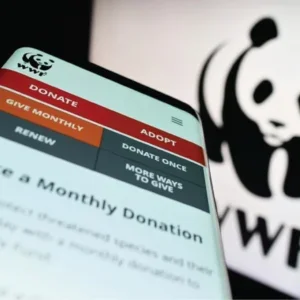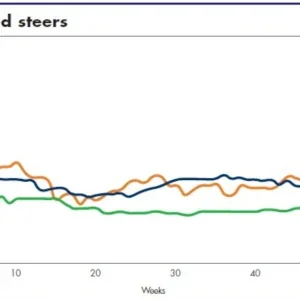In a complex year for leather, the Leather Naturally website observed a perfect storm for the industry as nearly every issue it was originally set up to address started to have an impact.
For most of the past 50 years, the industry has deliberately chosen neither to explain nor to promote leather. During this time, while PETA became very aggressive against fur, until about five years ago, it largely ignored leather. While there was the odd attack on kangaroo leather for football boots, or other relatively marginal areas, there had never been a proper assault on leather itself.
With the rise in vegetarian and vegan diets, however, PETA and other animal rights bodies have begun to feel emboldened to take aim at leather.
The 2006 FAO Livestock’s Long Shadow gave them scientific backing, and Stella McCartney’s determined search for leather alternatives provided a high-profile figurehead.
In the past few years, a determination to attack leather has emerged, aided by the fact that PETA is smart and well funded. The arrival of some good alternates from synthetics – pineapples and mushrooms, for example – has also added to the anti-leather momentum. From the industry’s point of view, the promotion of vegan or cruelty-free ‘leathers’ is causing consumers to become confused about what leather actually is. Stella McCartney went on record as saying that she regarded it as a success if someone bought one of her plastic handbags thinking it was leather. The emotional element is important, hence the emphasis on cruelty and killing.
Coordinated response
These results of this pressure have necessitated a response, so Leather Naturally has been insisting that the industry’s opinion deserves to be heard.
It is also encouraging to learn that various industry initiatives are focusing on improving the industry from within. Examples include a more intense focus on chemical management by the Leather Working Group; the establishment of new tannery areas (such as Savar in Bangladesh) with a central effluent treatment plant; and education on how to create safer working environments. These positive examples need strong support, exposure and enforcement from industry leaders, governments and the supply chain to ensure that bad practices are consigned to history.
There is a danger that all this takes our mind off the desirable qualities of our own material. The leather industry needs positive marketing, not an endless policy of defence. It is a big challenge, as it is many years too late, but it is essential to persevere, given that leather’s future is at stake.
Battle joined
Defensive campaigns cannot be the foundation for a strong, enduring industry. Instead, representatives all over the world across every level of operations – from hides to retailers – must join with machinery and chemical companies to create powerful and memorable programmes that promote all that is good about leather.
Regional and national organisations have been set up to fight those selling alternatives using illegal claims; it is pleasing to see them burst into action and they will have Leather Naturally’s full support. In 2018 and 2019, it is essential that positive messages are communicated to help leather fight for a share in existing and new markets.
Leather Naturally’s steering committee is focusing on finalising a promotion and marketing plan, while engaging the industry. Support from the latter is crucial in order to ensure that leather will stay a preferred material for its beauty, comfort and versatility. One thing is clear: the battle for leather is more serious than ever.
The Leather Naturally steering committee
- Michael Duck, director, APLF
- Perrine Ardouin, director, APLF
- Fernando Bellese, marketing and sustainability manager, JBS
- Rodrigo Henrique, Lanxess
- Mike Redwood, spokesperson, Leather Naturally
- Reg Hankey, CEO, Pittards
- Debbie Burton, director of marketing, Pittards
- Jon Clark, CEO, PrimeAsia
- Sarah Swenson, chief sustainability officer, PrimeAsia
- Egbert Dikkers, innovation and sustainability leader, Smit & zoon






